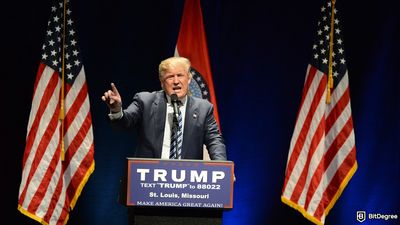Tornado Cash co-founder denies any wrongdoing.
Roman Storm, the cryptocurrency mixer Tornado Cash co-founder, has entered a plea of not guilty to all charges against him, including money laundering and US sanction violations.
The charges lodged by US authorities are closely tied to allegations that Tornado Cash aided the North Korean Lazarus Group in circumventing American sanctions and funding the country's nuclear program.

Did you know?
Want to get smarter & wealthier with crypto?
Subscribe - We publish new crypto explainer videos every week!
How to Pick the Right DeFi dApp? (Dos and Don’ts Explained)


According to information sourced from Inner City Press, Storm entered his not-guilty plea in the US District Court for the Southern District of New York on September 6th.
Roman Semenov, an alleged co-conspirator in the case, has also been charged but remains at large. Both are accused of conspiracy to commit sanctions violations, conspiracy to commit money laundering, and conspiracy to operate an unlicensed money-transmitting business.
After his arrest, Storm was released on a $2 million bond and faced travel restrictions, confining him to certain parts of New York, New Jersey, Washington, and California.
However, Storm and Semenov are not the only Tornado Cash-related entities facing legal challenges. Alexey Pertsev, also the platform's co-founder, was arrested in the Netherlands in August 2022 on similar charges. He has since been released and is currently awaiting trial under house arrest with electronic monitoring.
The US Treasury Department’s Office of Foreign Assets Control (OFAC) has drawn criticism for adding Tornado Cash to its Specially Designated Nationals list in August 2022. Many in the cryptocurrency sector have questioned the legitimacy of this action, even bringing lawsuits against the US Treasury.
The legal proceedings surrounding Tornado Cash co-founder Roman Storm are attracting significant attention, given the complex ethical and legal issues. The case also raises important questions about the limits of government authority in regulating cryptocurrency transactions, with it receiving both scrutiny and support from different quarters of the crypto space.






















